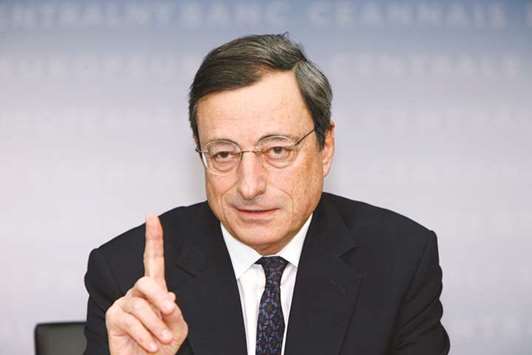Mario Draghi said Europe must address youth unemployment by creating a more open, vibrant labour market if it wants its democratic values to live on.
“In several countries the weight of the crisis has fallen disproportionately on the young people, leaving a legacy of failed hopes, anger and ultimately mistrust in the values of our society and in the identity of our democracy,” the European Central Bank president said in Dublin, ahead of a questions-and-answer session with university students.
Draghi acknowledged that some progress has been made, largely due to years of central-bank stimulus that has spurred 17 quarters of economic growth.
The euro area has added 6mn jobs over that period and youth unemployment dropped from 24% in 2013 to 19% last year, though still remains four percentage points above the pre-crisis level.
While the ECB chief’s speech didn’t address policy makers’ current talks on whether they should pare back their stimulus measures by reducing bond purchases, he did reiterate his cautious approach in response to a question.
Monetary policy must “ensure price stability, and price stability is defined as an inflation rate which is close to 2%; now today that means we are not there,” he said.
“That is why monetary policy remains extraordinarily accommodative.”
Draghi called on politicians to strengthen the European single market to create more opportunities for work and mobility for young people, singling out Germany and Austria for their dual education system that offers on-the-job experience from a very early stage.
He also said that jobs are more important than redistributive policies.
“Some say that a more equitable distribution of income and wealth is the answer and that it would bring those who have lost out from globalisation back into our compact,” he said. “But that cannot be enough for the young people who are the future of our democracies.
They do not want to live on subsidies.”

Draghi: Progress made.
